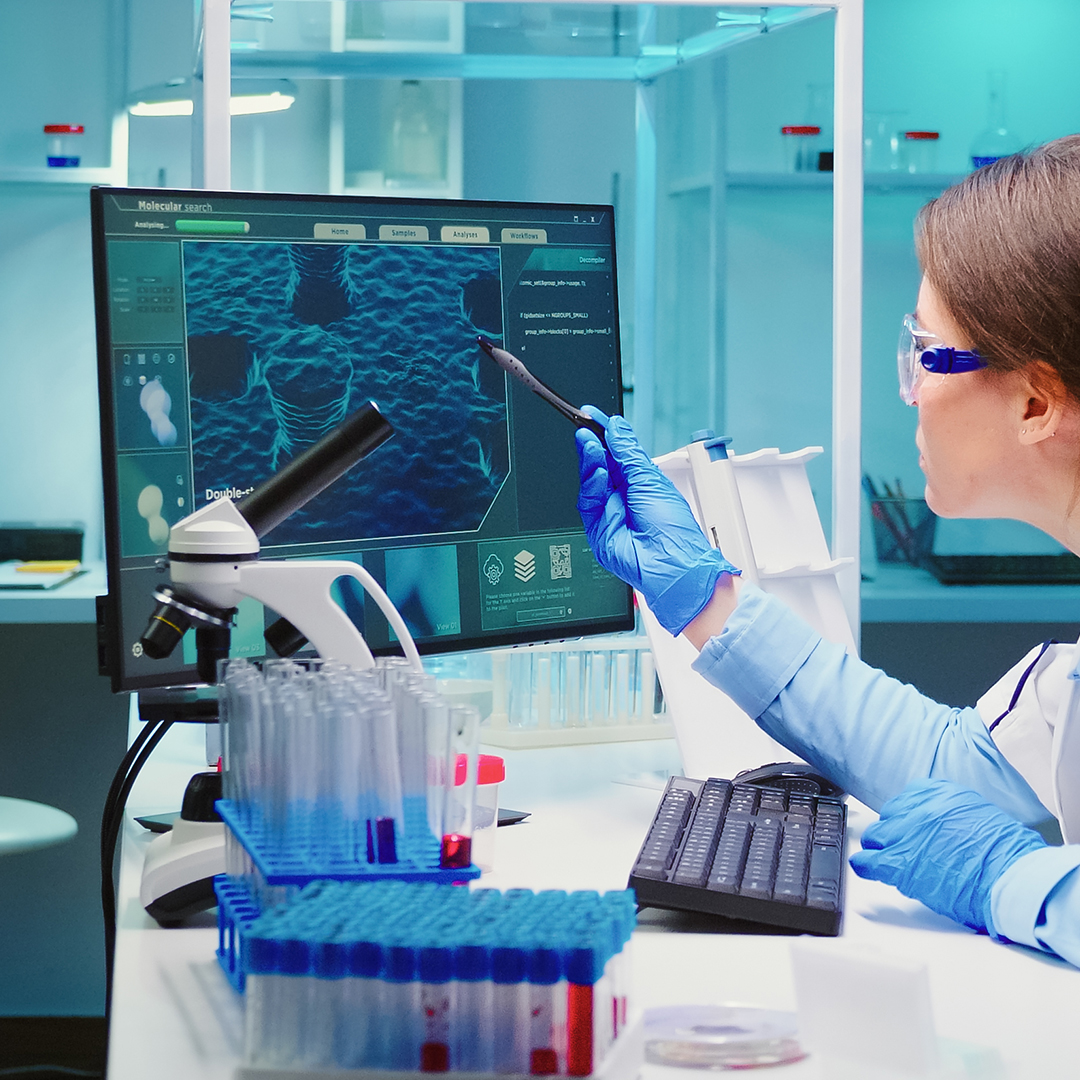The Crucial Role of Technology in Antibody Sequencing Services
In the dynamic landscape of biotechnology, one area that has witnessed a significant transformation is antibody sequencing services. As technology continues to advance at an unprecedented pace, its influence on antibody sequencing cannot be overstated. In this article, we will explore technology's vital role in revolutionizing antibody sequencing services.
Advanced sequencing platforms, such as next-generation sequencing (NGS) technologies, enable the rapid and high-throughput analysis of antibody sequences. These platforms enhance the speed and efficiency of sequencing services, allowing the analysis of a large number of samples simultaneously.
Software development companies play a crucial role in antibody sequencing services by providing the technological infrastructure and solutions needed to enhance the efficiency, accuracy, and scalability of the sequencing process. See to it that you collaborate with solution experts in the healthcare domain to get it done.
Antibody Sequencing
Antibodies, proteins created by the body's immune system, act as guards for spotting and disabling harmful intruders, like viruses and bacteria. These extraordinary proteins have a crucial function in our body's defense mechanisms, protecting us from various illnesses.
Using the capabilities of antibodies, scientists have utilized their potential to create treatments, vaccines, and diagnostic tools. To efficiently achieve this, they must decipher and comprehensively inspect the genetic plan of antibodies.

Antibody sequencing services include identifying the DNA or RNA order of the genes responsible for antibodies. This genetic data is essential for grasping the design and role of antibodies, allowing scientists to create improved treatments, investigate immune reactions, and create more precise diagnostic tests.
Bioinformatics and Data Analysis
The influx of complex data generated by high-throughput sequencing technologies necessitates advanced bioinformatics tools for effective analysis. Powerful algorithms and computational methods are now employed to decipher the vast amount of genetic information obtained through antibody sequencing. These tools not only identify potential therapeutic antibodies but also aid in predicting their efficacy, enhancing the precision of antibody development.
Bioinformatics tools and software are essential for the analysis and interpretation of antibody sequencing data. These tools help identify variable regions, CDRs (complementarity-determining regions), and framework regions in antibody sequences. They also assist in comparing sequences, identifying potential mutations, and predicting antibody functionality.
Factors Influencing the Cost of Antibody Sequencing
The price of antibody sequencing can fluctuate notably, contingent on numerous elements. It's crucial to account for these factors when approximating costs for your sequencing endeavor:

1. Sequencing Method
The approach you opt for in antibody sequencing significantly impacts the total expense. There are various methods to select from, such as Sanger sequencing, next-generation sequencing (NGS), and single-cell sequencing. Each approach has its distinct benefits and expenditures.
Sanger Sequencing: This is the classic and more straightforward sequencing technique. It is still employed for antibody sequencing, particularly for single-chain variable fragments (scFv). Sanger sequencing is economical for small-scale projects but can get costly for large-scale analyses.
Next-Generation Sequencing (NGS): Next-generation sequencing (NGS) methods, like Illumina and PacBio, have transformed antibody sequencing. They provide excellent efficiency and precision and have the capability to sequence intricate antibody collections. Nevertheless, NGS usually comes with greater initial establishment expenses.
Single-Cell Sequencing: It is the preferred approach for a comprehensive understanding of antibody variation and clonal choice. While it furnishes priceless information, it is also one of the pricier alternatives.
2. Sample Quantity and Complexity
The number of samples and the intricacy of the models you're handling will considerably affect the expenditure. Conducting extensive sequencing of numerous samples or samples from various origins can raise costs. Moreover, if you're dealing with highly varied collections, it may necessitate a more thorough examination, which can increase expenses.
3. Bioinformatics Analysis
Sequencing is merely the initial phase in antibody sequencing undertakings. The data produced must be managed and assessed, frequently demanding advanced bioinformatics instruments and knowledge. The price of bioinformatics evaluation relies on the intricacy of the task and the extent of data comprehension needed.
4. Quality and Depth of Sequencing
The excellence and thoroughness of sequencing are crucial for precise outcomes. Top-notch sequencing with extensive coverage is pricier but can provide more dependable information. More affordable, inferior sequencing may result in mistakes or incomplete data.
5. Turnaround Time
The pace at which you require your outcomes can likewise influence the expense. Fast-tracked sequencing services are frequently pricier than regular processing times. If your project has stringent deadlines, you might have to allocate more funds for sequencing.
6. Service Provider
The selection of service suppliers can significantly influence the expense of antibody sequencing. Various providers might present differing cost arrangements, and it's crucial to ponder customers' reputation, proficiency, and feedback when picking a supplier.
7. Additional Services
Depending on your study requirements, you might need extra services, like preparing libraries, purifying samples, or specialized data analysis procedures. These can contribute to the total expense.
Estimating the Cost
Due to the assortment of elements impacting the expense of antibody sequencing, presenting an exact figure is tricky. Nevertheless, we can propose a general approximation relying on particular suppositions.
Suppose you're utilizing next-generation sequencing (NGS) for antibody sequencing, collaborating with a respected service supplier, and dealing with a moderate quantity of samples.

It's vital to recognize that these are rough approximations, and the actual expense of your project can fluctuate. To acquire a precise quotation, it's wise to converse with sequencing service suppliers and provide them with comprehensive project specifications.
Cost-Saving Tips
Although antibody sequencing is a precious and frequently required investment, there are strategies to enhance expenses without jeopardizing the excellence of your outcomes.
Sample Pooling
Sample pooling is a clever tactic used in genomics and molecular biology to make the most of resources and lower the total price of sequencing, especially with Next-Generation Sequencing (NGS) methods. This method includes combining numerous individual samples, thus enabling more efficient handling and sequencing, ultimately resulting in improved cost-efficiency and data gathering.
Optimize Data Analysis
Enhancing data examination is a key element of bioinformatics research that requires careful preparation to focus endeavors on the most essential aspects of the investigation. Reflective deliberation and well-planned choices can bring about substantial cost savings, as redundant and irrelevant data analysis stages can greatly raise the costs of genomics and molecular biology projects.
Conclusion
Antibody sequencing is a potent instrument used extensively in biotech, and immune studies. Technology has become the driving force behind the evolution of antibody sequencing services. From high-throughput sequencing to advanced bioinformatics, single-cell sequencing, CRISPR (Clustered Regularly Interspaced Short Palindromic Repeats) technology, automation, and machine learning, each innovation contributes to a more comprehensive and efficient approach to understanding and harnessing the power of antibodies.
As technology continues to advance, the future holds even greater promise for the development of novel and targeted antibody therapies, ultimately benefiting patients and advancing the frontiers of biotechnology. As a seasoned software development company, Bridge Global has helped many healthcare providers with innovative solutions, and if you are in need of developing software solutions/platforms, bioinformatics tools, integrations, real-time monitoring tools, etc. feel free to discuss your need with us.


